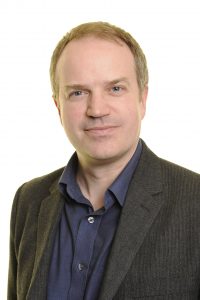 Philip Matthews, Executive Director, NuLeAF
Philip Matthews, Executive Director, NuLeAF
The Local Government Association’s special interest group on radioactive waste, NuLeAF, explain their view on geological disposal, and set out their expectations of Government policy.
Guided by a government White Paper published in 2014, the Geological Disposal Facility (GDF) will be the repository for the UK’s higher-level radioactive waste. It will involve the construction of a highly-engineered facility many hundreds of metres below the surface and spreading out over several kilometres. Once all the waste has been placed in the site it will be permanently sealed.
Given the nature of the material being disposed of, and the scale of the repository, this is clearly a huge technical challenge. However an even greater challenge is political. The Government is clear – the GDF will not be imposed on a community; instead a consenting host area will have to be found. As such, local government is central to the GDF siting process, and NuLeAF, as the Local Government Association’s representative body on nuclear decommissioning, has been active in shaping the government’s approach.
NuLeAF’s view is that a deep geological repository represents the best current solution for disposing of our high-level radioactive wastes. In line with CoRWM, the UK Government’s expert independent advisory group, we believe that we must dismantle and make safe our ‘high hazard’ legacy nuclear sites. Such material will pose risks to people and the environment for hundreds of thousands of years, and locking it away underground will remove it from human contact and the risk of accidents. Such ‘deep disposal’ is agreed internationally as the best solution and similar facilities are already under development in France, Switzerland, Sweden and Finland.
So the GDF can address a major environmental issue for the UK. Any community hosting it will be providing a national service and this must be recognised. In addition to the employment and the direct economic impact generated by such a large project, we want to see significant additional funds invested in improving infrastructure and environmental quality. Local authorities are the democratically accountable representatives of their communities, with expertise in planning, economic development, and environmental enhancement. They, and the local people they represent, must be at the heart of this development process.
It is currently anticipated that, from summer 2018, communities will be able to enter into the site selection process. NuLeAF, as the voice of local government, will be working to ensure the final framework for the GDF is clear and robust. We will support and advise councils interested in entering, and continue to represent them in discussions with Government and RWM, the GDF delivery agency.
NuLeAF (Nuclear Legacy Advisory Forum) is the LGA’s Special Interest Group on radioactive waste and decommissioning with over 100 local authorities as members. It acts both as a voice for local government and to help build awareness and capacity on these issues within councils. For more information, or to discuss the GDF process further, please contact Philip Matthews, Executive Director of NuLeAF philip.matthews@nuleaf.org.uk. More information about NuLeAF can be found on their website www.nuleaf.org.uk.
